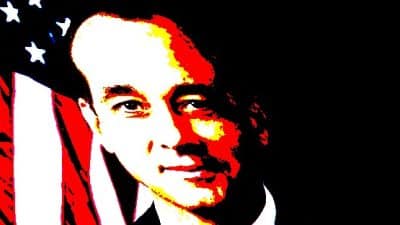Americans apparently do not have enough money with the price of things.
It would take an average American 30 years, through a 30-year mortgage, to pay off his home. It would then also take five years for his car, a few years for his student loan, and have several years to pay loans for anything from appliances to vacations and other bills.
Reality presents that an average American has already spent all their money before it even gets to their hand. Take the following situation.
1. Taxes are taken before the salary reaches the employee.
2. The employee then pays off all the monthly installments.
3. Money is allocated for food and transportation for the period, or until the next salary.
4. Money is allocated for utilities.
After looking at the above, the biggest risk every average American has is, “All the things I have worked for all my life can go away if I lose my job”
And it will really hurt. When oil prices rose to unbelievable heights, Americans had to tighten their belts, which has caused a bad effect in the economy. This bad effect caused many companies to start closing shop or laying off to survive.
There were quite a large amount of layoffs, which meant those who were laid off had to find other jobs, or face losing their property to foreclosure for inability to pay off debt.
Debt has indeed become a disease of monumental scale. Everyone has spent their money before actually receiving it. The money spent would be the money of those who save theirs.
No one wants to stop people from spending money they do not have, businesses get paid by banks anyway, so they would encourage the use of credit cards.
There is now a deepened need for budget balancing. Getting loans is just as bad as gambling once it becomes an addiction. There has to be a limit on how much of a person’s salary could be allocated for credit payments and people have to learn how to save.
Saving money is not something to be forgotten. People should have at least 8 months to 1 year worth of savings to cover household necessities. Otherwise, large problems can arise.
While this article might look bleak, it is just as important to realize that the entire economy is going through a correction phase. The biggest businesses now will be on credit management and negotiations. Banks would rather negotiate with their clients on payment schemes than not collect anything at all. Budget management seminars and coaches in this field will start to flourish and find themselves in demand from everyone, the economy will find some footing to come back, but it will now have to be more alert.
The credit phenomenon is not exclusive to USA, but it is just as bad in other countries. The major difference would lie on the fact that everyone in the world has investments and trade relations with the U.S. large enough to feel the aftershocks in their own countries.
Given the severity of the situation. The entire world now feels just as involved as the U.S. in choosing the right president as well. As stated in my previous article, the new president has to realize that international relations is just as vital as it has always been. Everyone else will not appreciate a president who cannot fix the current situation, as they now feel that their own investments will be at greater risk with a president who does not have a proper plan on resolving the situation.
This would also cause further problems within the U.S. economy. If the world is not too confident with the new president, they will reduce their risk and move it elsewhere. This would mean lesser investment in the economy, which would worsen the situation.
The current issue is resolvable, but it will take time. The government will now put more emphasis on solidifying its core industries, and will need to encourage more advanced industries to develop. Given the free economy system, it has to constantly remain competitive.
The world just has to hang on tight, and wait.











